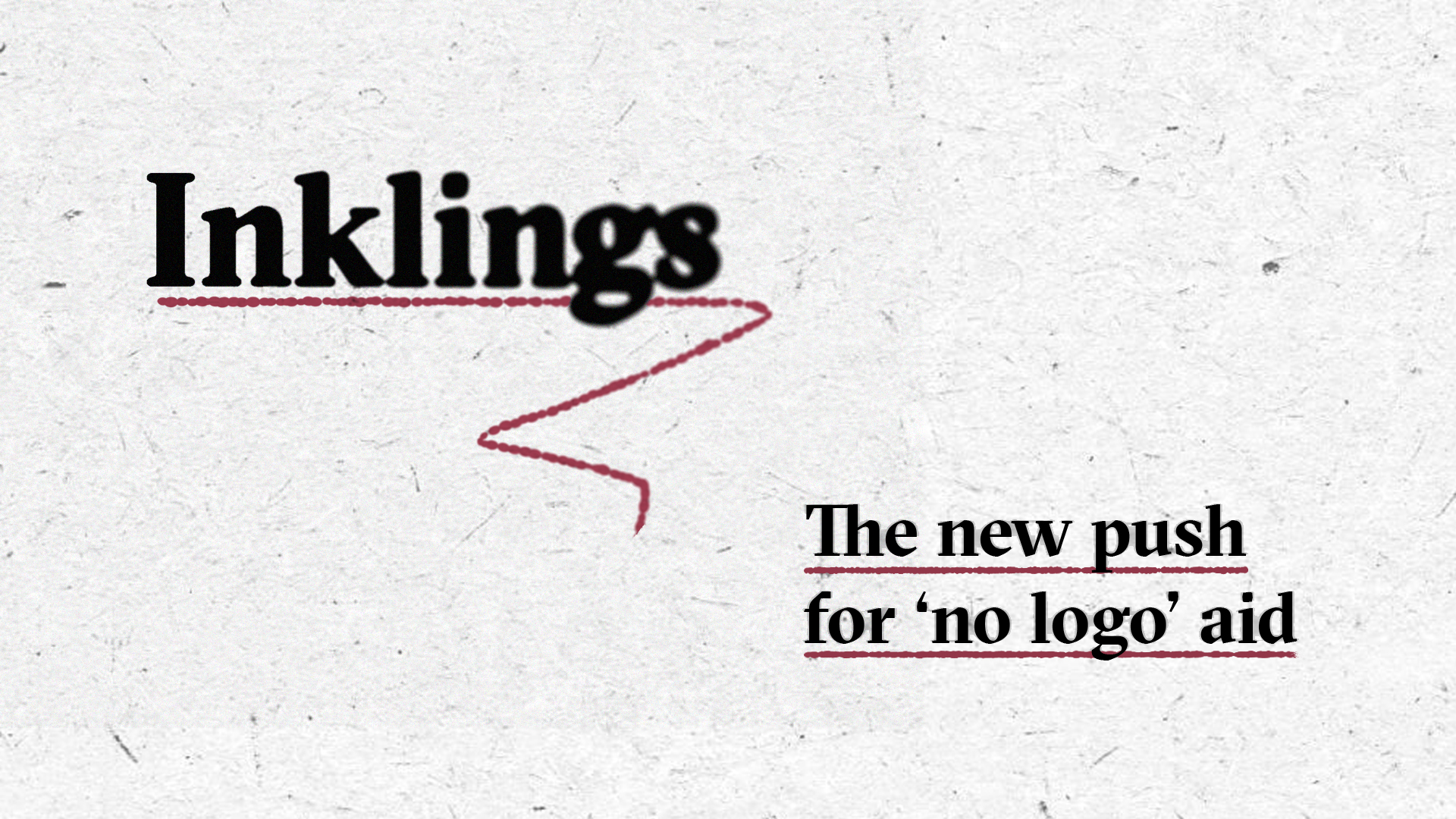Welcome to another edition of Inklings, where we explore all things aid and aid-adjacent unfolding in the wilds of Geneva, on the front lines of emergency response, or in the fine print of project proposal forms.
It’s also available as an email newsletter. Subscribe here.
Today: Disclosing misconduct, charting attacks on aid workers in Gaza, logo-free toilets, and the outrage over why a climate hub won’t be headquartered in Nairobi.
On the radar|
No logo: The Norwegian Refugee Council has new rules aimed at cutting the use of logos on aid supplies and infrastructure – and it wants the rest of the sector to follow. “The people we work with should not need to be reminded constantly of their benefactors,” NRC head Jan Egeland wrote in a February letter sharing his plan with aid agencies and donor reps. There will be no NRC or donor logos on school bags and family tents, the letter states. It will develop “discreet labels” for some infrastructure; NRC logos will remain on vehicles, premises, and uniforms. It’s part of a goal to tackle what Egeland described as a sector-wide “arms race” of logos and branding that demeans people who use aid (See more from my interview with Egeland below).
- Will others follow? Donors and international agencies are eager to show who’s providing aid and who’s funding it – and the parade of stickers, signs, and logos in refugee camps and elsewhere is the bluntest way to do it. Tight donor budgets and greater competition for funding is likely to step up the pressure to brand. For some, branding is ingrained: UNICEF, for example, calls its light blue backpacks “an iconic symbol of hope and childhood”. It says it shipped 1.3 million of them last year; it also markets them (labelled as “survival gifts”) as part of its fundraising.
- One problem: There’s a rather large roadblock on the highway to no-name aid: donor demands. Minimum “visibility” is written into project contracts. For example, the EU’s humanitarian aid arm, ECHO, hard-codes it from the start: project proposal forms include compulsory sections for logos on signs, equipment, shipments, and goods, including blankets, tents, and hygiene kits. There’s an elaborate ECHO branding website, multiple guidelines, and a two-page visibility checklist. “The non-implementation of visibility and communication activities justified on partner’s ‘internal policies or guidelines’ will not be accepted,” the website warns. NRC receives about 12% of its funding from ECHO. Egeland said he wants to work with donors to agree on “minimum visibility”. I asked both ECHO and UNICEF for comment, but haven’t heard back.
Can an aid platform prevent abuse in academia? There’s a push for UK universities to help end impunity for sexual abusers by joining an information-sharing scheme used by international NGOs in the humanitarian sector. The 1752 group, which focuses on sexual misconduct in UK higher education, wants universities to join the UK-funded Misconduct Disclosure Scheme (the journal Nature recently reported on this). The disclosure scheme’s backers say the platform has blocked the recruitment of known abusers in the aid sector in 385 cases since 2018. Meanwhile, as of March, the UN’s equivalent information-sharing platform, ClearCheck, had found eight “exact matches” in its screening database after verification requests.
Acronymage|
NSM-20: National Security Memorandum 20 is the Biden policy meant to ensure that countries that receive US-made weapons aren’t interfering with the delivery of humanitarian aid, among other things. A group of 20 or so major NGOs signed a March statement warning that aid responses in Gaza have “been consistently and arbitrarily denied, restricted, and impeded by the Israeli authorities”. A notable omission from this list: World Vision. The group has been cautious about signing on to other Gaza-related aid statements, as keen Inklings readers will know.
PACJA: It seems Geneva needs another international body. The Santiago Network, a globally mandated advice body for climate loss and damage, will call Geneva home instead of Nairobi. The network’s advisory body made the controversial decision last month, even though Nairobi was the original recommendation. In a statement, the Panafrican Climate Justice Alliance called the pick the result of “the power-wielding tactics of the global north to control all the decision-making processes for responding to climate change”.
Data points|
The Israeli military’s airstrike killings of seven World Central Kitchen aid workers in Gaza, including foreign staff, drew international condemnation, promises to investigate, and a sort-of apology.
Contrast this with the more muted response to the already unprecedented death toll for aid workers in Gaza. Before this week, at least 196 Palestinian aid workers had been killed in Gaza over the last six months, as our recent analysis outlined:
More aid workers died in only three months in Gaza last year than the deadliest year ever recorded for humanitarians globally. “It’s nearly three times the death toll recorded in any single conflict in a year,” contributor Léopold Salzenstein writes.
Salzenstein’s reporting outlined a pattern of Israeli military strikes that has seen aid convoys, guesthouses in designated safe zones, shelters, and NGO headquarters bombed. Read Salzenstein’s piece for more behind the unprecedented aid worker death toll in Gaza.
End quote|
Here’s my interview with NRC’s Jan Egeland from last year, where he talks about the “arms race” to slap donor and aid logos on everything from tents to toilets – and his game plan to end it.
“I’ve seen organisation names on the smallest toilet, you know, with the organisation and the donor,” he said. “Let them go to the toilet in peace, really.”
Of course, it’s not the first time excessive branding has been raised (we see you, Mr Crisp). Will a Geneva-level push lead to change? The goal: “We need to tone it down, all of us,” Egeland said.
The Inklings newsletter: Have any tips, recommendations, or indecipherable acronyms to share? Get in touch: [email protected]






